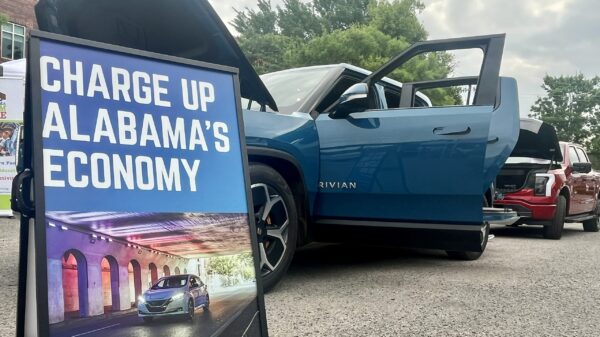|
Getting your Trinity Audio player ready...
|
The city of Birmingham has joined a new peer-learning cohort led by the National League of Cities to reduce the inequitable and harmful impacts of municipal fines and fees on residents’ financial health. Birmingham joins eight other cities across the nation as part of the Cities Addressing Fines and Fees Equitably (CAFFE) initiative.
Participating cities will engage in peer learning opportunities, virtual and in person. In addition, participants will receive tailored technical assistance from NLC staff and national content experts to help advance the city’s efforts in expanding economic opportunities for low-to-moderate-income families through policy reforms.
“I am thrilled that Birmingham will be among this national cohort,” said Birmingham Mayor Randall L. Woodfin. “Under the leadership of Judge Andra Sparks, our Court works to be restorative in justice. From the creation of Life University, a comprehensive life skills support program to employment liaison support for unemployed and underemployed individuals, Judge Sparks and his team are innovative and compassionate in how they serve our residents.”
“Mayor Woodfin’s directive to ‘Put People First’ has established an environment for us to look for creative ways to lessen the financial burden on our citizens,” said The Honorable Andra Sparks, Presiding Judge of Birmingham Municipal Court. “Birmingham’s inclusion in the CAFFE cohort allows us to draw on the knowledge of leaders from other progressive cities to establish programs that will directly benefit our friends and neighbors.”
Cities participating in NLC’s CAFFE initiative will also receive grant support to assess and reform inequitable policies in the court system and implement innovative financial empowerment approaches to help residents who are in debt to cities as a result of municipal fines and fees.
Cities will also have the opportunity to learn from the experiences of the first cohort of CAFFE cities which began in 2019, and the success of their work to assess and structurally reform how fines and fees impact low-income residents.
City leaders have seen the devastating economic impacts that fines and fees debt can have on low-income residents, particularly residents of color. Excessive fines and aggressive debt collection practices can snowball, often leading to license suspensions, utility cut-offs, and even jail. Individuals at risk of entering the justice system when they are unable to pay criminal justice fines and fees are particularly vulnerable. Many cities have implemented strategies to address these negative impacts, including reforming fines and fee structures and enacting ability-to-pay policies as an alternative solution.
In addition to Birmingham, the seven other cities joining the project include Dallas, Texas; Las Vegas, Nevada; Maywood, Illinois; Montgomery, Alabama; Pueblo, Colorado; St. Louis, Missouri; and Washington, D.C. This cohort program runs from January 2023 through February 2024 and is supported by JPMorgan Chase.



















































